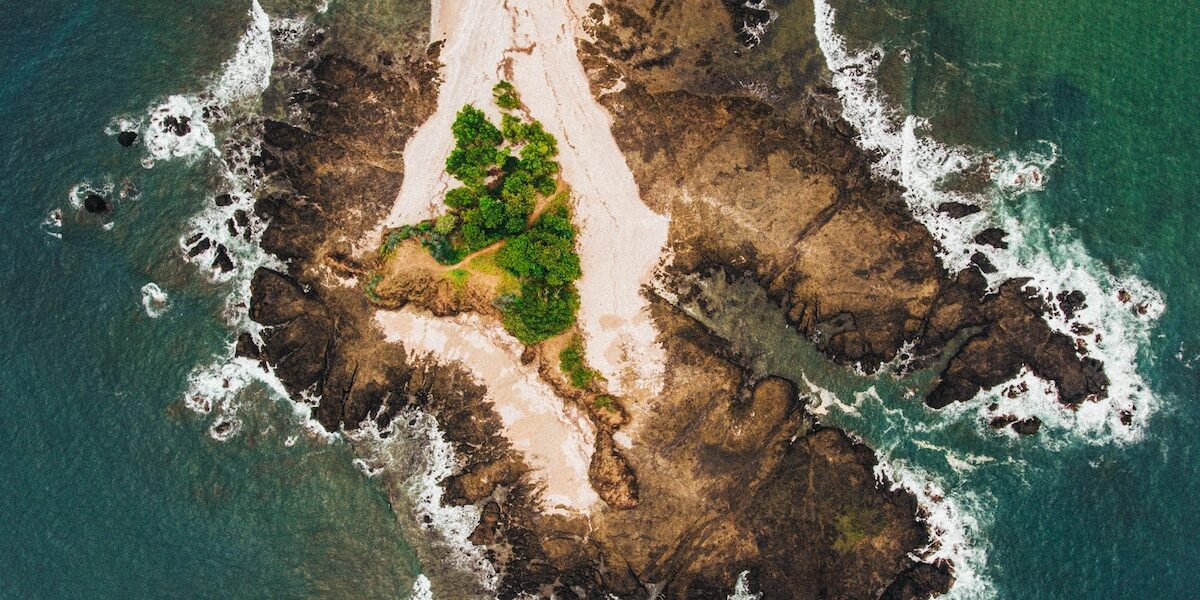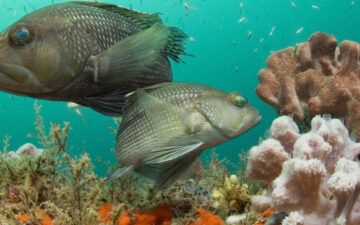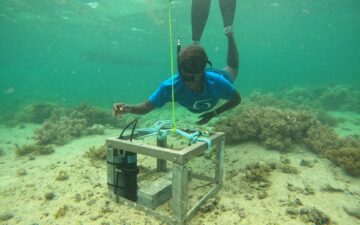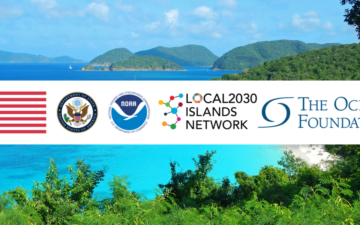Host institute: Instituto de Investigaciones Marinas y Costeras (INVEMAR), Santa Marta, Colombia
Dates: 28th of January to 1st of February, 2019
Organizers: The Ocean Foundation
The US Department of State
The Swedish International Development Agency
The Global Ocean Acidification Observing Network (GOA-ON)
Latin America Ocean Acidification Network (LAOCA)
Language: English, Spanish
Contact point: Alexis Valauri-Orton
The Ocean Foundation
Washington, DC
Tel: +1 202-887-8996 x117
E-mail: [email protected]
Download the Advanced Training Workshop flyer.
Overview:
Ocean acidification – the unprecedented decline in the ocean’s pH as a result of carbon dioxide emissions – poses significant threats to ecosystems and economies in the Latin America and Caribbean region. Despite this threat, there are significant gaps in our understanding of current ocean chemistry conditions in the region. The purpose of this workshop is to provide advanced, hands-on training to enable the development of new monitoring stations in the Latin America and Caribbean region in order to fill these gaps.
This workshop is part of a series of capacity building trainings organized by The Ocean Foundation and its partners, including The Global Ocean Acidification Observing Network (GOA-ON), the International Atomic Energy Agency’s Ocean Acidification International Coordination Centre (IAEA OA-ICC), and supported by multiple funding partners, including the U.S. Department of State and the Swedish International Development Agency. This regional workshop is co-organized by the Latin America Ocean Acidification Network (LAOCA Network).
The training will focus on the use of the GOA-ON in a Box monitoring kit – a suite of equipment developed by Drs. Christopher Sabine and Andrew Dickson, The Ocean Foundation, The IAEA OA-ICC, GOA-ON, and Sunburst Sensors. This kit provides all hardware (sensors, lab-ware) and software (QC programs, SOPs) required to collect weather-quality carbonate chemistry data. Specifically, the kit includes:
- Sunburst Sensor’s iSAMI pH sensor
- Bottle sample and preservation materials for the collection of discreet samples
- A manual titration set up for determination of the alkalinity of discreet samples
- A spectrophotometer for manual determination of pH of discreet samples
- A computer loaded with sensor and QC software and SOPs
- Ad hoc equipment to support the collection and analysis of samples on an institution-by-institution basis
Workshop participants will spend the week mastering the equipment and techniques included in the GOA-ON in a Box kit. Participants will also have the opportunity to learn about additional techniques and instruments that are available at the host institution, INVEMAR.
Qualifications:
All applicants must be from the Latin America and Caribbean region. A maximum of eight institutions will be invited to attend, with up to two scientists per institution invited to attend. Four of the eight institutions must be from Colombia, Ecuador, Jamaica, and Panama, thus scientists from those countries are particularly encouraged to apply, however, scientists from all countries in the region are encouraged to apply for the other four positions.
Applicants must hold a Master’s Degree or a PhD in chemical oceanography or a related field and must hold a permanent position at a research or government institution that conducts ocean and/or water quality research. Five years of experience in a related field can substitute the degree requirements.
Application process:
Applications should be submitted via this Google Form and must be received no later than November 30th, 2018.
Institutions may submit multiple applications, but a maximum of one proposal per institution will be accepted. A maximum of two scientists may be listed on each application as attendees, though additional scientists who will be trained as technicians after the workshop may be listed. Applications must include:
- A narrative proposal including
- A statement of need for ocean acidification monitoring training and infrastructure;
- A preliminary research plan for use of the ocean acidification monitoring equipment;
- A description of the applying scientists’ experience and interest in this field; and
- A description of institutional resources available to support this project, including, but not limited to, physical facilities, human infrastructure, boats and moorings, and partnerships
- The CVs of all scientists listed in the application
- A letter of support from the institution indicating that if the institution is selected to receive the training and equipment it will support the scientists’ use of their time to collect ocean chemistry data
Funding:
Attendance will be fully funded and will include:
- Travel to/from workshop site
- Lodging and meals for the duration of the workshop
- A custom version of GOA-ON in a Box for use at each attendee’s home institution
- A two-year stipend to support collection of carbonate chemistry data with the GOA-ON in a Box kit
Hotel Option:
We have reserved a room block at the Hilton Garden Inn Santa Marta at the rate of $82 USD per night. A reservation link with a special code is forthcoming, but if you would like to make a reservation now, please email Alyssa Hildt at [email protected] for assistance with your reservation.
Hilton Garden Inn Santa Marta
Address: Carrera 1C No. 24-04, Santa Marta, Colombia
Telephone: +57-5-4368270
Website: https://hiltongardeninn3.hilton.com/en/hotels/colombia/hilton-garden-inn-santa-marta-SMRGIGI/index.html
Transportation during Symposium and Workshop:
A daily shuttle will be provided in the morning and evening between the Hilton Garden Inn Santa Marta and the Symposium and Workshop activities at the host institute, Instituto de Investigaciones Marines y Costeras (INVEMAR).







